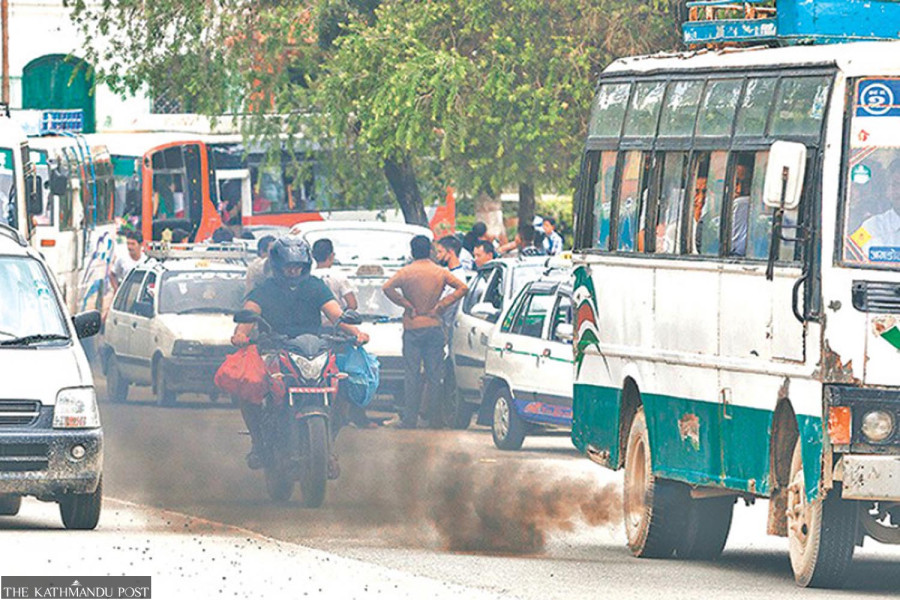Valley
Government to fine vehicles failing emission tests up to Rs100,000
Experts welcome the move but doubt effective implementation citing poor track record.
Anup Ojha
On Thursday the Environment Department under the Ministry of Environment and Forest issued a notice warning that from January 1, it will start fining vehicles failing pollution test up to Rs100,000. The move comes amid rising air pollution in the Kathmandu Valley.
The notice said, during random checks on Kathmandu’s roads, it found that most of the vehicles operating in the Capital failed emission tests. The department also blamed the open burning of waste as a major cause of air pollution in the Valley.
Bhupendra Das, an air quality expert from Clean Air Asia welcomed the move while also doubting its effective implementation. He said similar measures were announced in the past as well, but polluting vehicles still ply the roads. “They should do these emission tests more often, and make sure that the owners service their vehicles regularly,” said Das.
“Our research in 2020 showed that if the vehicles are serviced on time, this can reduce air pollution by 46 to 60 percent.”
He advised that the government should provide training to workers at automobile repair shops in the Valley on pollution-reduction measures.
According to Das, among the vehicles mostly failing air pollution tests are trucks and tippers, followed by public buses, pick-up vans and micro buses.
Five years ago, in December 2017, the department had made a similar announcement to control air pollution. A joint team from the Department of Environment, the Department of Transport, and the Metropolitan Traffic Police Division (MTPD) had started an air pollution reduction campaign and intensified random tests of vehicles, but the campaign was later discontinued.
Traffic engineer Ashish Gajurel also welcomed the department’s notice, but expressed doubts about the rule’s effectiveness.
“Now police records are in digital form, and traffic police can easily track rule violators, but how long can they give continuity to the rule is important,” said Gajurel.
In its attempt to reduce air pollution, the Kathmandu Metropolitan City issued a notice last month banning open burning of waste. It said anyone found violating the rule will face action as per the City’s Environment and Natural Protection Act.
Air quality control expert Das, meanwhile, said irregular collection of waste by the municipal authorities forces people to manage household waste on their own and burning is the easiest option. “If the household waste is collected on time, opening burning would come down significantly,” he said.
He also suggested that the municipal authorities find a way out to manage the waste generated in Kathmandu’s squatter settlements where open burning is more common. “People living in squatter settlements can’t pay for waste disposal. Also they make open fires to keep warm during the winter. The authorities should find a way out to tackle the problem.”




 9.7°C Kathmandu
9.7°C Kathmandu.jpg)














